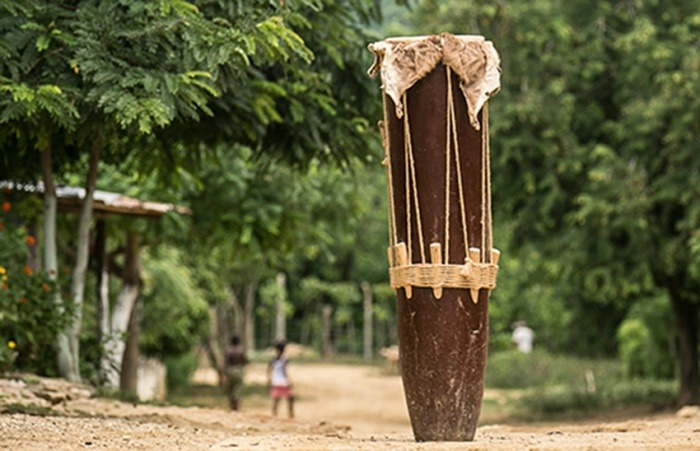
“Along with Brazil, the Caribbean coast of Colombia where I was born, is the part of Latin America where you feel the strongest influence of Africa. In this sense, the trip I took to Angola in 1978 was one of the most fascinating ever. I felt like I cut my life in half. I expected to find myself in a strange, totally strange world, and from the moment I set foot there, from the moment I smelled the air, I found myself within the world of my childhood. Yes, I found my childhood, customs, and things I had forgotten. I returned and even had the nightmares that I had in childhood».
Gabriel García Márquez. From the book The Fragrance of Guayaba, Conversations of Gabriel García Márquez with Plinio Apuleyo Mendoza.
The New Journalism Foundation -FNPI-, created by García Márquez himself in the city of Cartagena de Indias, and the Ministry of Culture of Colombia joined forces in 2012 to establish an international program of training and creation in which reporters from five continents have the opportunity to expand their range in cultural journalism and to explore Colombia and recount, in Spanish and in English, stories of culture which mix the richness of the traditional and the popular with the latest in literature, music, film and visual arts.
In 2016 the workshop explores the contributions of the local population of African origin in the culture of the Caribbean, particularly Cartagena de Indias and the nearby San Basilio de Palenque; using the tools of cultural journalism including interviews, reporting and personal commentary. It is also an opportunity to think about the role of cultural journalism in an era in which creator and audience have an increasingly direct contact, facilitated by digital tools.
Cartagena de Indias is the emotional center of the life and work of Gabriel García Márquez, the place where he built a house with the goal of living out his final years, where many of his novels and stories are set, where he began his career as a journalist, and the base for one of his most important legacies: The Gabriel García Márquez Foundation for New Latin American Journalism (FNPI). Cartagena was, moreover, one of the principal ports of colonial Spain, from the 16th century until the beginning of the 19th century, and was declared a UNESCO Historic Site in 1984. San Basilio de Palenque, in municipality of Mahates 70 km from Cartagena—both sites belong to the Department of Bolivar in the Caribbean región of Colombia—is testimony in the present day, to the resistance of the Cimarron, the runaway slave. The language spoken by the inhabitants, criollo palenquero, is a living link to their African heritage, containing features of the Bantu language. In 2008, UNESCO declared San Basilio de Palenque a World Heritage Site.
Both locations, Cartagena de Indias and San Basilio de Palenque, contain further racial and cultural links. Cultural traditions influenced by Africa; including music, dance, food, to name only a few; are fundamental to the life of the inhabitants, and can serve as subjects that journalists can explore and develop.
From the purely journalistic point of view, this fourth edition of the Fellowship provides the opportunity to exchange experiences and strengthen the skills of the participants both in cultural journalism and journalism in general, while focusing on the importance of a narration of diversity; in this case focused on a population of African descent, its cultural and historical processes, its importance in the building of the nation and its representation in media.
The journalists which take part in this experience are guided by colleagues of high professional renown, accompanied by guest experts to help expand both their vision and the criteria by which they choose the facts and characters that will serve as the protagonists of their stories, always with the methodology that distinguish the FNPI’s workshops, where emphasis is placed on practical work, dialogue, and professional exchange in an informal setting where camaraderie is promoted.
The Gabriel García Márquez Fellowship in Cultural Journalism is an open call from the Gabriel García Márquez Foundation for New Journalism and the Ministry of Culture of Colombia and Cartago Foundation,
with support from Surtigas. By participating in this program, the Ministry of Culture and other supporting entities highlight Gabriel García Márquez’s passion for journalism, literature, music, and Caribbean culture.
